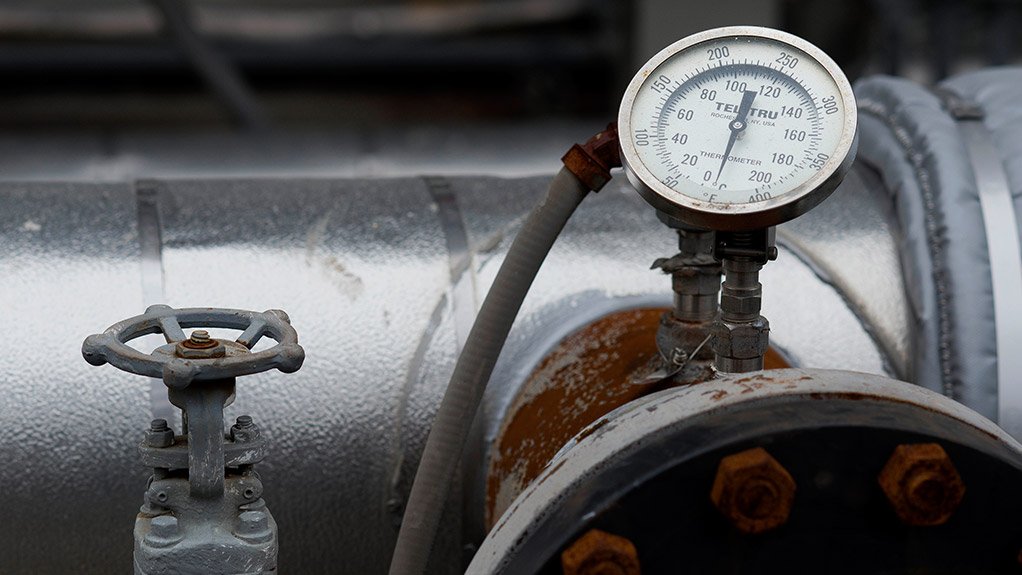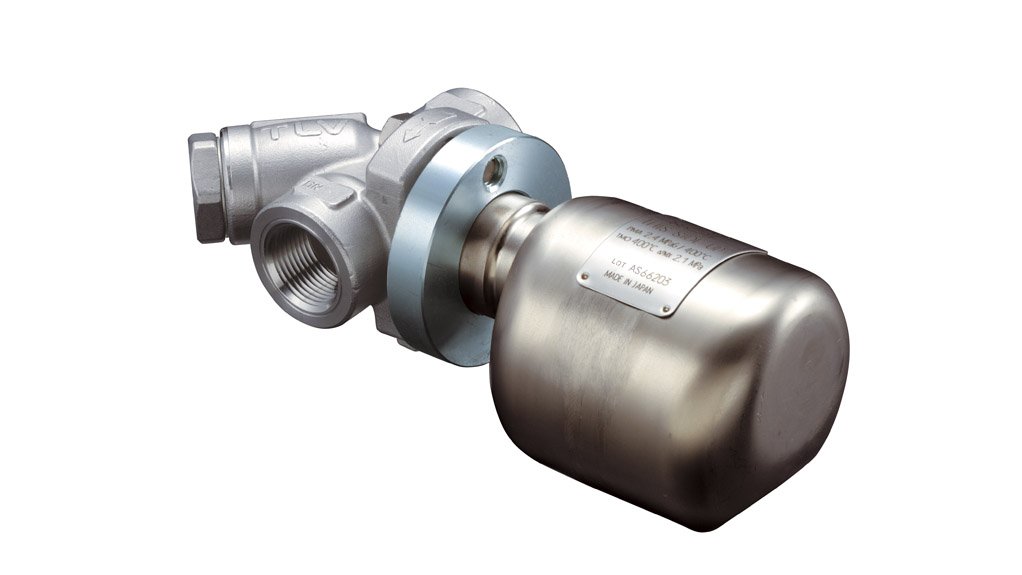Steam traps enhance energy conservation, reduce downtime



STEAM POWER As much steam as possible needs to be retained in steam transport piping as it is a valuable source of latent heat
ENHANCED ENERGY USE The F46 connector, together with the Quicktrap steam trap range, will ensure efficient use of energy on Sasol’s seventeenth air-separation train
Valve products and services provider Heaton Valves Africa has been contracted to supply steam traps for the seventeenth air separation train that is under way at energy and chemicals company Sasol’s Secunda complex, in Mpumalanga.
Heaton Valves Africa highlights that these easily maintained traps, already extensively used by Sasol and in other applications, will significantly enhance the train’s energy use.
The project is part of an upward trend observed by the company in the uptake of steam traps by the South African petrochemicals industry generally in the past year. Heaton Valves Africa initially introduced Japanese steam specialist TLV’s range of Quicktrap steam traps to South Africa in 2000, but the company notes that there has been renewed interest in the product recently, as petrochemicals companies attempt to conserve energy and reduce maintenance downtime.
Heaton Valves Africa says that this surge in demand can be attributed to the combined effects of a depressed oil price and a weak rand exchange rate, which have negatively affected the industry’s energy costs and driven the implementation of extensive energy management programmes in the sector.
Steam is used regularly for heating or as a driving force for mechanical power in many industries, including the petrochemicals industry, says the company. “Owing to this, as much steam as possible needs to be retained in steam transport piping or in heat exchangers, as it is a valuable source of latent heat. However, heating efficiency is compromised if condensate is not efficiently removed,” Heaton Valves Africa explains.
Heaton Valves Africa describes a steam trap as a special kind of automatic valve that ensures that as much steam as possible is contained in an enclosure by filtering out condensed steam and non-condensable gases, generated during industrial processes, without letting steam escape.
TLV offers a range of steam traps for various applications, which has been developed to automatically discharge condensate. Steam traps rely on either a difference in temperature, specific gravities or pressure to function, and offer high levels of energy conservation. TLV highlights that its range allows for easy maintenance through the incorporation of interchangeable parts.
TLV’s Quicktrap range offers either a free float, thermodynamic or balanced pressure thermostatic steam trap to suit the particular application. The series also combines with a highly durable F46 connector, which can be fabricated to suit any piping configuration and installed in either horizontal or vertical orientation, making it suitable for a range of applications. “Once the connector is installed, it becomes very quick and easy to remove the trap for maintenance or replacement,” Heaton Valves Africa further notes.
Owned and operated by multinational gas and services supplier Air Liquide, the 5 000 t/d seventeenth train will supply oxygen and nitrogen to the synthetic fuels (synfuels) and chemicals manufacturing process in Secunda. Using the latest air-separation technology and economies of scale, this train will be the most energy efficient oxygen train on site, with a significantly reduced environmental impact.
Sasol will use the oxygen provided by Air Liquide to produce synfuels, and the capacity created by the new train will enable Sasol to operate the complex up to the middle of the century, which is a cornerstone of the group’s Project 2050 strategy. The new train is expected to be commissioned by December 2017.
Article Enquiry
Email Article
Save Article
Feedback
To advertise email advertising@creamermedia.co.za or click here
Announcements
What's On
Subscribe to improve your user experience...
Option 1 (equivalent of R125 a month):
Receive a weekly copy of Creamer Media's Engineering News & Mining Weekly magazine
(print copy for those in South Africa and e-magazine for those outside of South Africa)
Receive daily email newsletters
Access to full search results
Access archive of magazine back copies
Access to Projects in Progress
Access to ONE Research Report of your choice in PDF format
Option 2 (equivalent of R375 a month):
All benefits from Option 1
PLUS
Access to Creamer Media's Research Channel Africa for ALL Research Reports, in PDF format, on various industrial and mining sectors
including Electricity; Water; Energy Transition; Hydrogen; Roads, Rail and Ports; Coal; Gold; Platinum; Battery Metals; etc.
Already a subscriber?
Forgotten your password?
Receive weekly copy of Creamer Media's Engineering News & Mining Weekly magazine (print copy for those in South Africa and e-magazine for those outside of South Africa)
➕
Recieve daily email newsletters
➕
Access to full search results
➕
Access archive of magazine back copies
➕
Access to Projects in Progress
➕
Access to ONE Research Report of your choice in PDF format
RESEARCH CHANNEL AFRICA
R4500 (equivalent of R375 a month)
SUBSCRIBEAll benefits from Option 1
➕
Access to Creamer Media's Research Channel Africa for ALL Research Reports on various industrial and mining sectors, in PDF format, including on:
Electricity
➕
Water
➕
Energy Transition
➕
Hydrogen
➕
Roads, Rail and Ports
➕
Coal
➕
Gold
➕
Platinum
➕
Battery Metals
➕
etc.
Receive all benefits from Option 1 or Option 2 delivered to numerous people at your company
➕
Multiple User names and Passwords for simultaneous log-ins
➕
Intranet integration access to all in your organisation




















